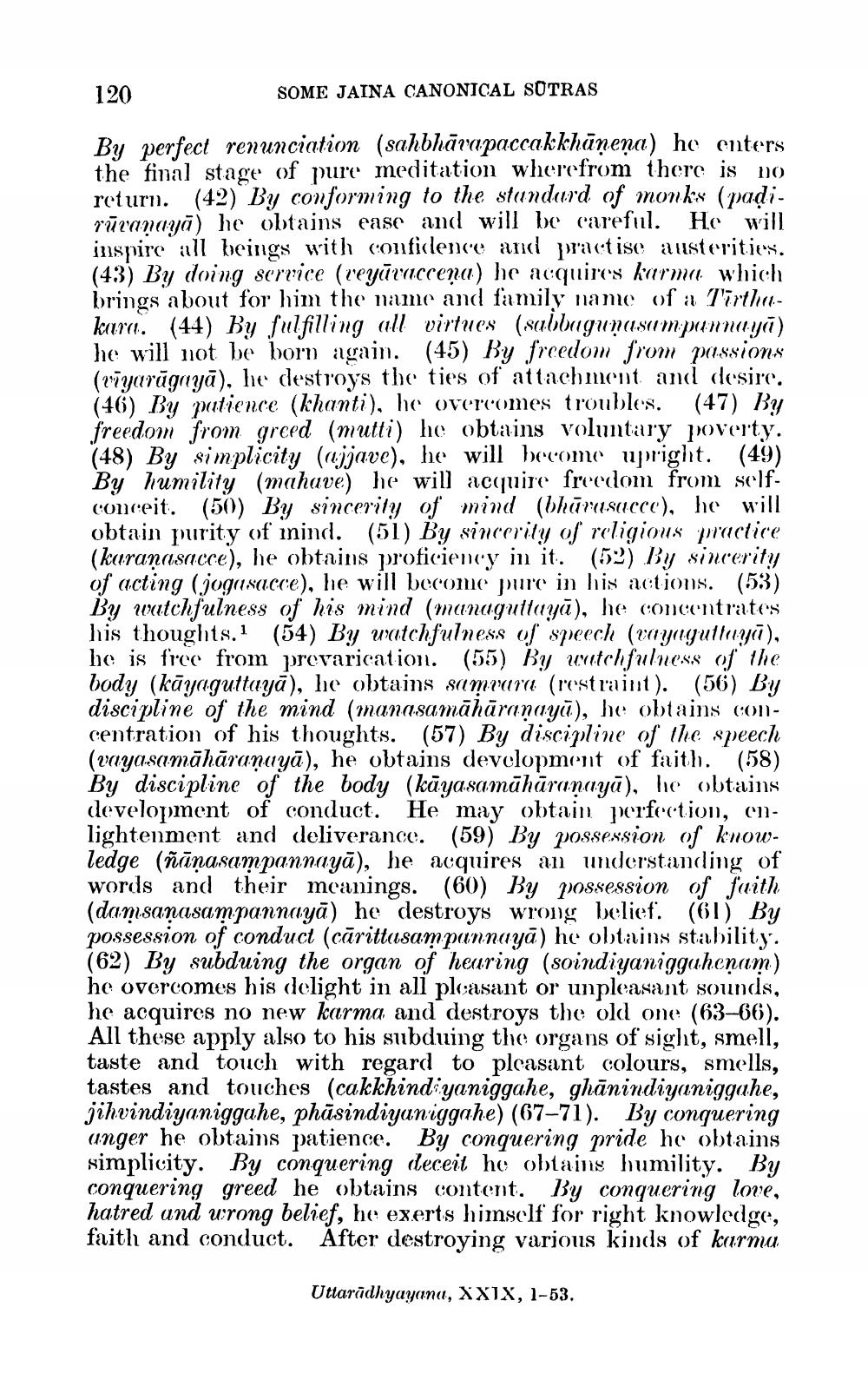________________
SOME JAINA CANONICAL SUTRAS
120
By perfect renunciation (sahbhāvapaccakkhāṇena) he enters the final stage of pure meditation wherefrom there is no return. (42) By conforming to the standard of monks (padirūvaṇaya) he obtains ease and will be careful. He will inspire all beings with confidence and practise austerities. (43) By doing service (veyavaccena) he acquires karma which brings about for him the name and family name of a Tirthakara. (44) By fulfilling all virtues (sabbagunasampannayā) he will not be born again. (45) By freedom from passions (viyarāgaya), he destroys the ties of attachment and desire. (46) By patience (khanti), he overcomes troubles. (47) By freedom from greed (mutti) he obtains voluntary poverty. (48) By simplicity (ajjave), he will become upright. (49) By humility (mahave) he will acquire freedom from selfconceit. (50) By sincerity of mind (bharasacce), he will obtain purity of inind. (51) By sincerity of religious practice (karanasacce), he obtains proficiency in it. (52) By sincerity of acting (jogasacce), he will become pure in his actions. (53) By watchfulness of his mind (managuttaya), he concentrates his thoughts. (54) By watchfulness of speech (vayaguttaya), he is free from prevarication. (55) By watchfulness of the body (kayaguttaya), he obtains samvara (restraint). (56) By discipline of the mind (manasamāhāraṇayā), he obtains concentration of his thoughts. (57) By discipline of the speech (vayasamāhāraṇayā), he obtains development of faith. (58) By discipline of the body (kayasamāhāraṇayā), he obtains development of conduct. He may obtain perfection, enlightenment and deliverance. (59) By possession of knowledge (ñanasampannaya), he acquires an understanding of words and their meanings. (60) By possession of faith (damsanasampannaya) he destroys wrong belief. (61) By possession of conduct (carittasampannaya) he obtains stability. (62) By subduing the organ of hearing (soindiyaniggahenam) he overcomes his delight in all pleasant or unpleasant sounds, he acquires no new karma and destroys the old one (63-66). All these apply also to his subduing the organs of sight, smell, taste and touch with regard to pleasant colours, smells, tastes and touches (cakkhind yaniggahe, ghanindiyaniggahe, jihvindiyaniggahe, phasindiyaniggahe) (67-71). By conquering anger he obtains patience. By conquering pride he obtains simplicity. By conquering deceit he obtains humility. By conquering greed he obtains content. By conquering love, hatred and wrong belief, he exerts himself for right knowledge, faith and conduct. After destroying various kinds of karma
Uttaradhyayana, XXIX, 1-53.




